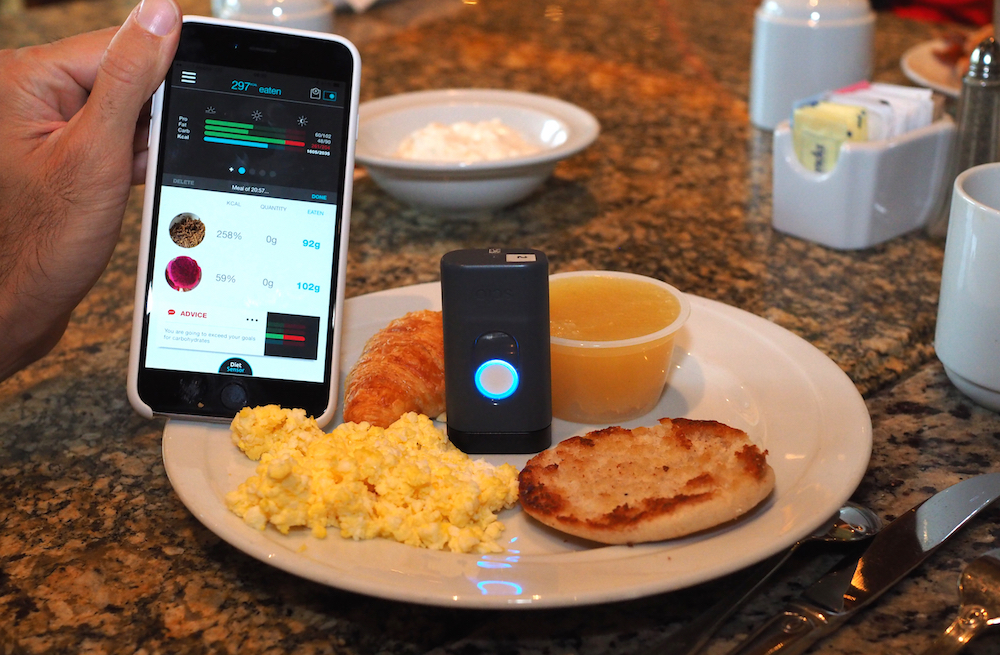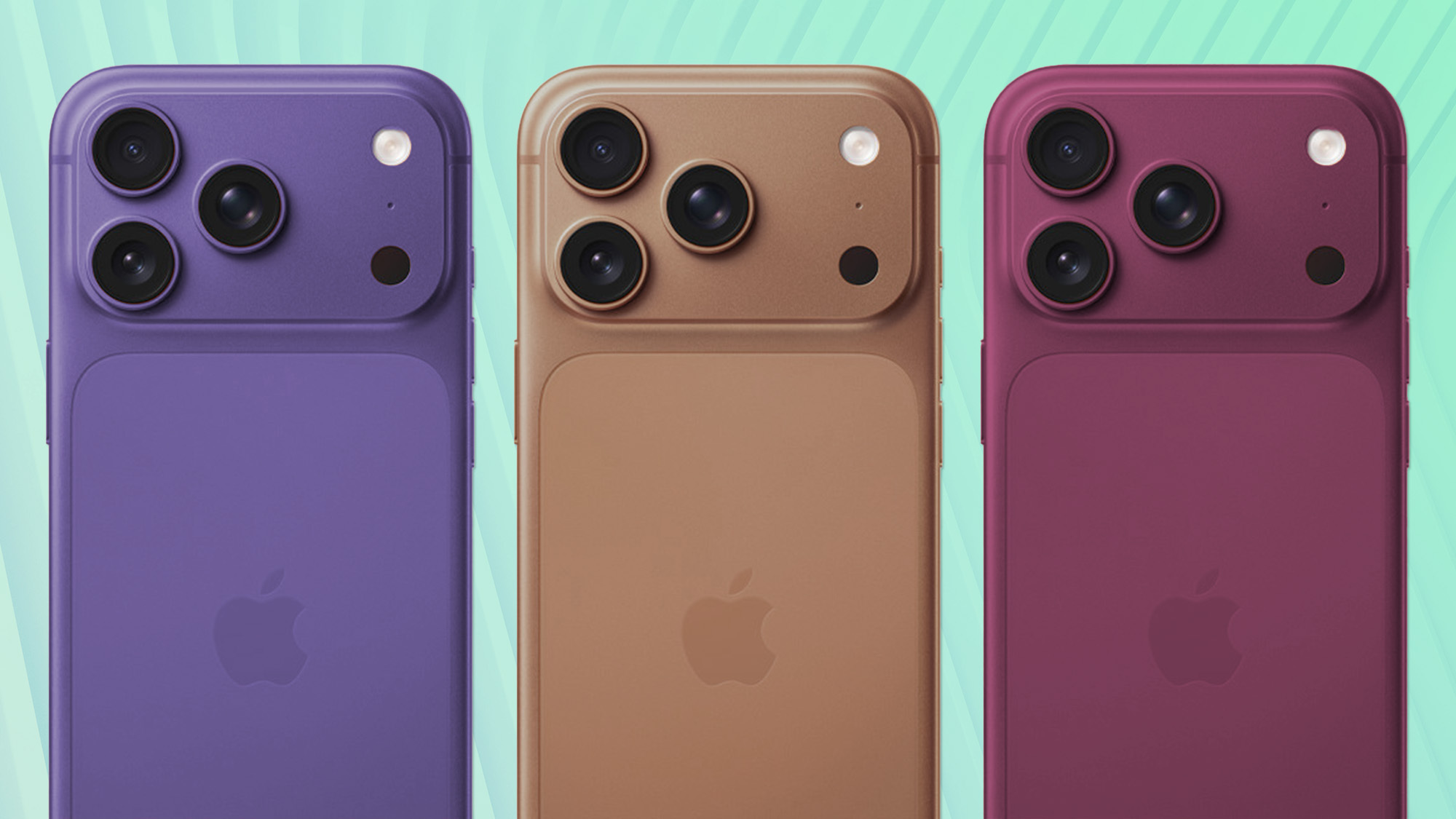This Sensor Keeps You From Cheating On Your Diet
The DietSensor app and Scio scanner can analyze the foods you're eating, and if they're healthy for you.
Here at Tom’s Guide our expert editors are committed to bringing you the best news, reviews and guides to help you stay informed and ahead of the curve!
You are now subscribed
Your newsletter sign-up was successful
Want to add more newsletters?

Daily (Mon-Sun)
Tom's Guide Daily
Sign up to get the latest updates on all of your favorite content! From cutting-edge tech news and the hottest streaming buzz to unbeatable deals on the best products and in-depth reviews, we’ve got you covered.

Weekly on Thursday
Tom's AI Guide
Be AI savvy with your weekly newsletter summing up all the biggest AI news you need to know. Plus, analysis from our AI editor and tips on how to use the latest AI tools!

Weekly on Friday
Tom's iGuide
Unlock the vast world of Apple news straight to your inbox. With coverage on everything from exciting product launches to essential software updates, this is your go-to source for the latest updates on all the best Apple content.

Weekly on Monday
Tom's Streaming Guide
Our weekly newsletter is expertly crafted to immerse you in the world of streaming. Stay updated on the latest releases and our top recommendations across your favorite streaming platforms.
Join the club
Get full access to premium articles, exclusive features and a growing list of member rewards.
LAS VEGAS — Diet tracking is the most tedious part of using any fitness or health app. You have to scroll through endless lists of food before you find the one you're eating, and then guess how much of it you're consuming. DietSensor hopes to eliminate this pain point by using a small scanner that can instantly analyze what you're eating — and if you should even be putting it in your mouth.
DietSensor's app pairs via Bluetooth with the Scio sensor, which has a small infrared light on one end. When placed against your food, it analyzes the colors reflected by the light, and then compares it to DietSensor's database to determine what's on your plate. Within the app, it shows the how much carbohydrates, fats, and proteins are in what you've scanned, and counts it against your recommended daily intake.
MORE: The Biggest Tech Trends
DietSensor was founded in 2014 by Astrid Assier de Pompignan and her husband Remy Bonnasse after they discovered how time-consuming it was to log all the food for their 9-year-old daughter Victoria, who has Type 1 diabetes. By having to take time out of each day to track in detail what Victoria was eating, they found it detracted from her leading a normal life.
As both the app and the sensor are still in final production — they won't be available until mid-2016 — DietSensor is still tweaking its algorithm to be able to recognize different types of foods. Currently, it only can accurately scan breakfast foods, but the company is working on adding rice and pasta to the mix. In the future, the company will also release a pocket-size scale, so that you can weigh your food on the go, too.

Another limitation is that the Scio sensor can only scan homogenous foods, such as a piece of bread or an apple. For instance, it can't analyze all the different ingredients in a double bacon cheeseburger. However, you can still enter complex foods such as that manually into the app, and DietSensor has a large library in its database, comparable to what you'll find with Fitbit. It will also recognize bar codes from prepackaged foods.
You can configure the DietSensor app based on your needs and nutritional requirements; the app sends notifications and advice based on what you've consumed during the day.
Get instant access to breaking news, the hottest reviews, great deals and helpful tips.
Although DietSensor can be used by anyone who wants greater information about what they eat, those who have a medical condition such as diabetes, hypertension, or are overweight, and need to precisely monitor their intake, will get the most benefit from the app and sensor. The Scio sensor will cost $249 when it goes on sale. A basic version of the app will be free, but a premium version, which lets you connect to the sensor, will require a monthly subscription of anywhere from $10 to $20.
Apart from the app, which could be very beneficial for those on strict diets, the Scio scanner is very interesting technology in itself, and could have lots of uses outside of food tracking. However, this first application is very practical — and potentially very helpful.

Michael A. Prospero is the U.S. Editor-in-Chief for Tom’s Guide. He oversees all evergreen content and oversees the Homes, Smart Home, and Fitness/Wearables categories for the site. In his spare time, he also tests out the latest drones, electric scooters, and smart home gadgets, such as video doorbells. Before his tenure at Tom's Guide, he was the Reviews Editor for Laptop Magazine, a reporter at Fast Company, the Times of Trenton, and, many eons back, an intern at George magazine. He received his undergraduate degree from Boston College, where he worked on the campus newspaper The Heights, and then attended the Columbia University school of Journalism. When he’s not testing out the latest running watch, electric scooter, or skiing or training for a marathon, he’s probably using the latest sous vide machine, smoker, or pizza oven, to the delight — or chagrin — of his family.
 Club Benefits
Club Benefits










